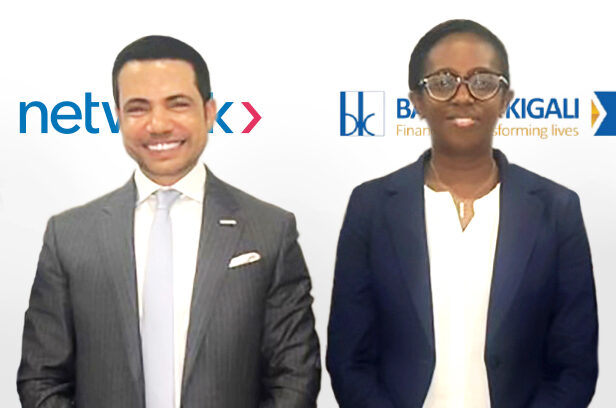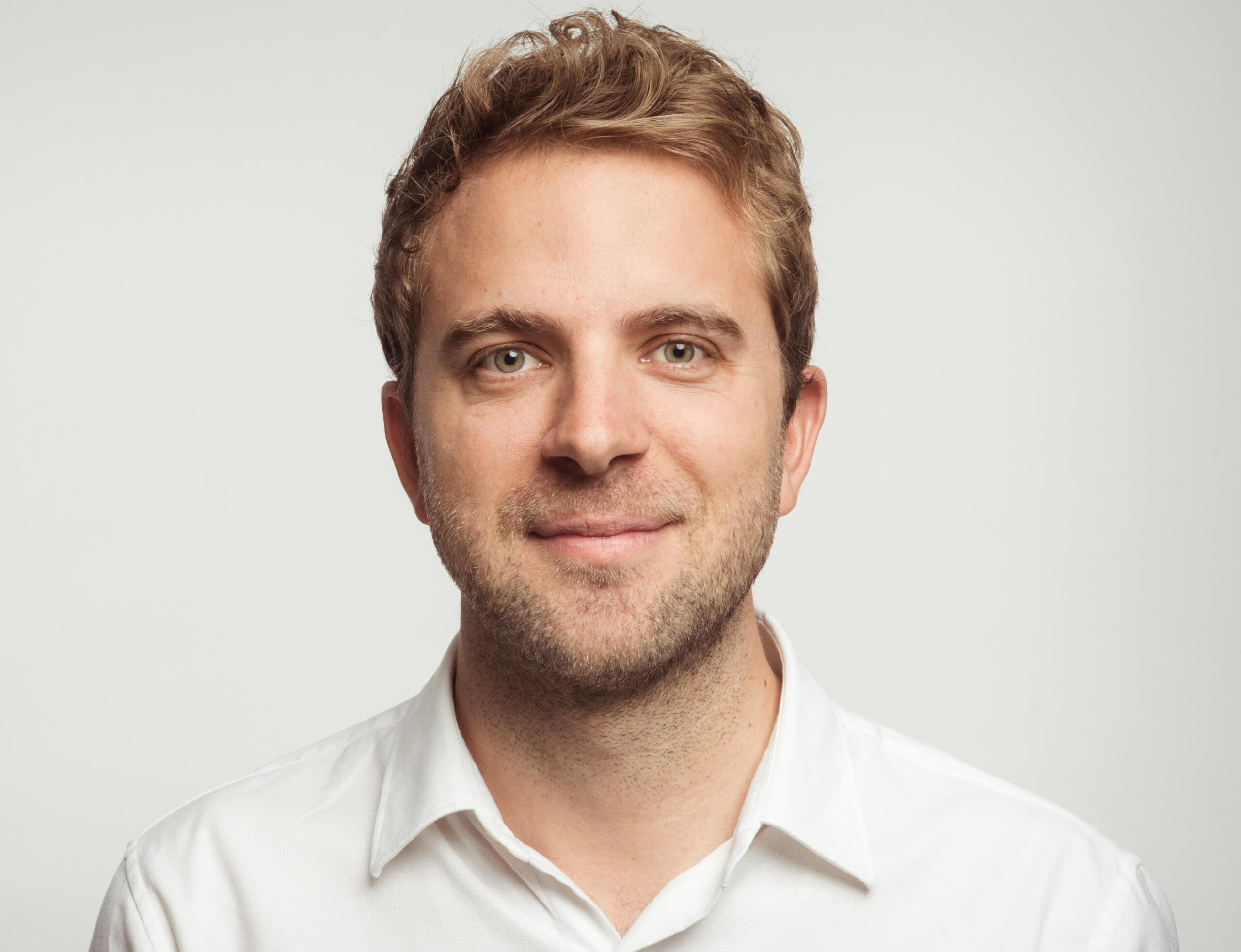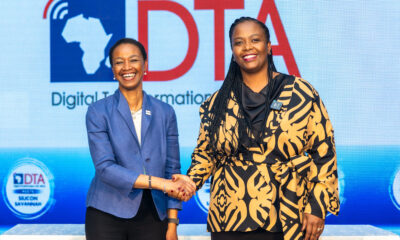Technology
South Korea ready to partner with Africa on technology

“A win-win proposition” – Akinwumi A. Adesina, President of the African Development Bank
SEOUL, Republic of Korea, February 7, 2019/ — In partnership with the African Development Bank (AfDB.org), Korea is ready to step up technology transfers to Africa, officials said in Seoul today.
Speaking at a meeting on potential technology partnerships between Korea and Africa, representatives of Busan Metropolitan City, Busan Techno Park, and Korea’s Green Technology Center said there was huge potential for cooperation and immense opportunities for job-creating bankable projects.
The range of business options include agriculture, green growth, smart urban transportation management, and numerous business opportunities.
President of the African Development Bank, Dr. Akinwumi Adesina says, “the Future is going to be an exponentially different future,” and that the Bank intends to “explore the creation of a strategic partnership with Korea that could lead to the creation of a Korea-Africa research and training Drone Center, that could help pave the way for Africa’s 4th Industrial Revolution.”
According to Hyung-Ju Kim, Director, Global Strategy Division, Green Technology Center, “Korean expertise can provide a practical and pragmatic solution to a wide range of Africa’s most pressing technology needs: The African Development Bank could play a major role here: if we bring technology to the table, the Bank can identify and facilitate bankable projects that can boost technology cooperation between Africa and Korea.”
With funding from the Korea-Africa Cooperation (KOAFEC) fund, the African Development Bank, in cooperation with Busan Metropolitan City, and the Busan Techno Park, has launched, a pilot project in Tunisia using drone technology to develop agriculture, including data collection and analysis, monitoring irrigated perimeters, aquifers, the effects of climate change, land degradation, biodiversity, filling and siltation of dams, and overall agricultural production.
Korea and the African Development Bank intend to extend the program to other countries and regions in Tunisia and Africa, and explore the massive market potential of industrial zones in other sectors.
Adesina says, “We are determined to expand the use of drones in agriculture in Africa. What we do in Africa today, will determine global food security tomorrow.”
For the President of the African Development Bank, it is important that the technological partnership with Korea translates into capacity building on the ground, through training, so that Africa can industrialize, build or assemble drones.
Busan City’s dominance as a Smart City on the cutting of artificial intelligence is thanks in part to political vision, one of the largest research and development expenditures in the world, and a team of 12,000 researchers and scientists.
Speaking afterwards to the African diplomatic corps in Seoul, Adesina identified three main obstacles to private sector development —access to finance, energy and stability. The Bank has invested $1 billion in AfreximBank, including $ 650 million in trade finance lines of credit and $ 350 million in trade insurance. The Bank has also invested $ 630 million in First Rand Bank and AbSA in South Africa to support expanded access to trade finance for 20 countries.
This financing effort includes small and medium-sized enterprises, which represent more than 80% of businesses in Africa. In this respect, he cited the Asian example, where large companies relied on value chains dominated by SMEs including suppliers and subcontractors. The Bank’s strategy is to develop large companies while connecting them to SMEs for increased value creation.
“Without electricity it is impossible to industrialize Africa,” Adesina said. The Bank has made access to electricity a top priority. Its ‘Desert to Power’ initiative will develop an estimated 10,000 MW in the Sahel region, making it the largest solar project in the world.
Adesina, the head of Africa’s leading development finance institution, says, the Bank’s 2018 Africa Investment Forum in South Africa, “secured investment commitments worth $ 38.7 billion in less than 72 hours, which provides a strong indication of global interest in Africa’s emerging markets.”
Experts say in order for the African Development Bank to continue supporting the continent’s development, a general capital increase is necessary. According to Adesina, an $11 billion increase in paid-in capital for example would significantly change the lives of millions of people, including 105 million who would have access to electricity; 137 million who would benefit from access to improved agricultural technologies; 22 million who would benefit from investments in private sector projects; 151 million with access to improved transportation services; and 110 million who would be provided with access to improved water and sanitation services.
The dean of the Board of Directors of the African Development Bank, Abdelmajid Mellouki, estimates that a general capital increase would enable the Bank to provide African countries with funding at significantly lower costs.
Adesina is on a three-day visit to Korea which includes several official visits, and to receive the SunHaK Peace Prize awards for which he and co-laureate, Waris Dirie a well-known activist against female genital mutilation, are the 2019 nominees. This is the first time the SunHak Peace Prize has been awarded to the African continent.
Adesina is expected to deliver a keynote address at the World Peace Summit of Global Leaders on February 9.
Distributed by APO Group on behalf of African Development Bank Group (AfDB).
Technology
Fawry and Roboost sign “MOU” to enhance digital transformation and financial inclusion

Fawry, the leading company in the field of banking technology and electronic payments, announced the signing of a joint cooperation memorandum with “Roboost“, a leader in developing delivery and logistics management systems, to automate payroll for home delivery couriers. The cooperation enhances the efforts of the digital transformation process and achieves the principles of financial inclusion in the delivery industry. The memorandum was signed in the presence of Mr. Hossam Ezz, CEO of the Commercial Sector at Fawry, and Mr. Mohamed Gessraha, CEO and Co-Founder of Roboost.
Within the framework of this joint cooperation, Fawry will provide delivery employees with myfawry yellowcards for convenient salary cashouts and empowering couriers with greater financial flexibility and control over their earnings, according to Roboost’s advanced solutions that manage the payroll data of more than 20,000 employees, based on detailed criteria, ensuring fair compensation based on specific aspects and eliminating the need for lengthy discussions with accounting teams.
The collaboration also saves accounting teams countless hours in payroll calculations and aims to optimize the payment and benefits system for couriers. In addition, Fawry will provide comprehensive medical insurance services for delivery employees, which confirms the company’s commitment to prioritize the welfare and retention of the courier workforce, and will provide all means of support to them in order to enhance the delivery industry.
The partnership between Fawry and Roboost represents an innovative step towards improving the courier experience and operational efficiency in the delivery industry. In addition, it contributes in achieving an unparalleled delivery experience for end users , and improving retention rates of delivery employees within companies. With a shared commitment to innovation and customer satisfaction, the partnership between Fawry and Roboost is poised to reshape the future of payroll management for home delivery couriers.
Mr. Sherif Aboshady, the SMEs Director at “Fawry”, said: “We are pleased with this partnership with “Roboost”, and are excited to work together to bring about a comprehensive change in delivery operations management systems.”
He added: At “Fawry”, we have a clear desire to target all sectors to benefit from Fawry’s advanced financial technology, and this will help these sectors keep pace with the fast-paced wheel of digital transformation, especially with the directives of the Egyptian state and Egypt’s Vision 2030.”
Mr. Mohamed Gessraha, CEO and Co-Founder of “Roboost” said: “Cooperation with Fawry, the first provider of financial technology services in Egypt, represents an important step in Roboost’s journey to automate all home delivery operations. This partnership will also greatly empower couriers in particular, which will lead to an improved overall customer experience.”
Technology
Accelerating Growth in an Inclusive Rwandan and Pan-African Digital Economy

By Dr. Diane Karusisi, CEO, Bank of Kigali and Dr. Reda Helal, Group Managing Director – Processing, Africa and Co-Head Group Processing, Network International (Image: Supplied).
One of the visible signs of a growing digital economy is its flourishing initiatives for financial inclusion and financial literacy. Rwanda recognizes financial inclusion as a crucial component for realizing its development and economic prosperity and is a remarkable example of a country that is introducing such programs to aid in setting up a vast digital economy, which are increasingly gaining international recognition. The country has set an ambitious target to achieve 90% formal financial inclusion by 2024.
Building inclusivity by involving microfinance institutions, savings and credit cooperatives, and mobile network operators, as well as enabling interoperability in digital payments, play a critical role in ensuring accessibility for populations that have historically been unbanked and rely on cash-based transactions.
Digital transformation
Traditionally, Banks and FIs feel enormous pressure to grow their digital payments penetration in a landscape that is radically different from even five years ago. This pressure is accentuated when Fintechs and wallet operators are added to the mix. Everything from regulatory requirements, a competitive landscape and consumer expectations to product innovations has upended the “business as usual” outlook for digital payment providers. The industry is fraught with challenges that payments leaders must carefully navigate.
Financial institutions are increasingly recognizing the importance of digital transformation and access to data. A legislation on the protection of personal data and privacy that was passed in October 2021 serves as a foundation for enabling trusted and secure domestic and international data flows and maximising the economic and social benefits of data-driven technologies, such as artificial intelligence (AI), for businesses and individuals in Rwanda.
The Bank of Kigali is an interesting example of a financial institution that has transitioned from traditional banking processes and payments to a structured digital platform. Embarking on a digital journey four years ago, the bank introduced several measures including internet banking and a mobile app, ISO standardization, and cyber resilient systems tuned to ensure the safety of customers’ data while enabling digital transactions through mobile phones.
Internet penetration in Rwanda stood at 30.5 percent of the total population in January 2023, with 4.25 million internet users. Incidentally, the ownership of smartphones in Rwanda stands at 26.7 per cent among men and 21 per cent in women respectively, according to the 2022 Rwanda Population and Housing Census, with the number of mobile phone users standing at 11.7 million in June 2023. Mobile phone penetration of 87 percent has consecutively increased the interest in digital payment solutions.
With the surge in mobile usage and e-commerce within the country, it is natural for banks to respond to the momentum and strengthen their digital economy payment services. The Bank of Kigali, for example, sought the advisory services of Network International (Network) to understand how to enhance and structure their product offering to cater to evolving customer behavior.
Network has been at the helm of accelerating digital transformation and has extensive experience in revolutionizing digital finance in the region with a deep understanding of digital payment offerings and technology usage. Network, using generational artificial intelligence and machine learning technologies, as well as market knowledge and data utilization, helps the Bank generate informed business decisions to refine their services proposition in accordance with consumer spending trends.
Threat landscape
In a rapidly evolving digital payments landscape, the threat of fraud looms large. According to TransUnion Africa, digital transactions in financial services surged by 12.2 per cent during the first half of 2023, and the alleged rate of suspected digital fraud attempts for transactions from Rwanda in financial services increased 252 per cent year-over-year (YoY) – the highest rise among industries analyzed. The Rwanda Investigation Bureau reported 254 cases of cybercrime involving up to RWF 416 million in 2021. While fintechs and other new stakeholders in the environment pave the way to superior banking services, they also ensure to bolster their systems with strategic analysis and secure data management systems to counter sophisticated fraudulent activity.
In this regard, Network supported Bank of Kigali with an authorization strategy with detailed analysis focusing on authorization diagnostic, data and fraudulent transactions. Based on the findings of this analysis, Network provided recommendations to aid the Bank in improving operational efficiency, reducing risks, and accelerating growth.
Advanced tools and technology leave no room for error or vulnerabilities, in an environment that is seeing a growing dependence on mobile wallets, digital-only banking platforms, and contactless payments, which fosters adoption of digital payment solutions between merchants and consumers. This security allows for convenient access to digital payment services which include remittances, timely purchases, e-commerce and small businesses promotions, insurance payouts and more.
By enabling innovation and operational efficiency for financial institutions, Network International contributes to government-led financial inclusion initiatives and supports the sustainability of commerce among the masses.
Technology
Lisk and CV Labs Africa Unveil VC Curated Blockchain Incubation Hub

Lisk Chief Project Officer, Dominic Schwenter (Image: Supplied).
With nearly a million developers, a flourishing cross-industry entrepreneurial mindset, and a remarkable surge in blockchain adoption, Africa’s ability to lead blockchain technology impact is undeniable. Yet, technology entrepreneurs face barriers like limited access to finance and expert mentorship. Lisk’s Blockchain Incubation Hub intends to solve that issue.
Lisk is a fast and scalable Layer 2 (L2) network secured by Ethereum. As a member of the Optimism Superchain, Lisk provides builders and users some of the cheapest fees possible in the Ethereum ecosystem (currently sub 1 cent) and is actively contributing to the larger Superchain mission of onboarding the next 1 billion people to Web3. Lisk’s strategic decision to focus on emerging markets stands as a testament to its commitment to innovation and inclusivity. By prioritizing these regions, the team acknowledges the transformative potential they hold for the global community.
Dominic Schwenter, Chief Project Officer at Lisk, speaking of the incubation program, said “As an established infrastructure project, that has long focused on making Web3 technologies more accessible to builders and users around the world, we fully understand the tremendous opportunity the African continent represents for the future of the blockchain industry. By working with established partners such as CV Labs and its VC pillar, CV VC, we intend to bring our mutual excellence to support African pioneers who harness ingenuity to empower their communities. Blockchain is the engine for propelling local economies across the continent and we are well aware of the great quality of the developer community in Africa. There’s no one better to solve challenges than local developers, founders, and entrepreneurs“.
CV Labs is a renowned blockchain accelerator and ecosystem builder within the Web3 space. CV Labs is a business pillar of CV VC, the Swiss headquartered blockchain venture capitalist. Lisk and CV Labs both originate from the world’s most mature blockchain hub – Crypto Valley. Each has local and active teams on the ground in Africa, committed to harnessing Africa’s ability to drive the future of the web – one that enables data transparency, new economies, and, most of all, a better way of interacting and transacting for Africans.
Gideon Greaves, MD of CV VC Africa, said “Our experience in creating interconnectedness among our African and global portfolio companies is a bedrock for their growth. As Africans ourselves, we are very excited to empower the Lisk Blockchain Incubation Hub with our ecosystem pillar CV Labs, leveraging local insights and global understanding for maximum impact. Importantly, CV VC’s investor-focused curation will support the appropriation of grant funds to ensure projects with impact and utility succeed”.
African nations are among the strongest adopters of cryptocurrencies, utilizing them both as a store of value, payment, and exchange purposes. Concurrently, the technology behind crypto, blockchain itself, is increasingly important in other ways for Africa due to its immutability which can address longstanding issues such as corruption, lack of transparency, and inefficiencies in sectors like finance, supply chain, and governance.
Builders on blockchain technology can enhance trust, promote financial inclusion, enable secure transactions, and streamline processes, particularly in regions with unreliable infrastructure and weak institutions. Additionally, blockchain can support individuals by enabling access to financial services and property rights, fostering their socioeconomic growth, and unlocking new opportunities.
Despite restricted global funding, technology ecosystems in Africa are emerging, and 15 African countries feature in the Top 100 Global Ecosystems. As Africa accounts for nearly 20% of the global population and a median age of 18.8 years, the continent’s youthful demographic presents a potent force for innovation. While 77% of VC funding in Africa comes from outside the continent, The Lisk Blockchain Incubation Hub is committed to enabling African entrepreneurs to achieve self-fulfilling revenues and new funding sources by becoming market-ready with viable products that meet African needs.
-

 Technology1 day ago
Technology1 day agoFawry and Roboost sign “MOU” to enhance digital transformation and financial inclusion
-

 Business Home1 day ago
Business Home1 day agoNBA Africa Launches Accelerator Focused on Early-Stage African Startups
-

 Entertainment1 day ago
Entertainment1 day agoUniversal Music France and Binetou Sylla partner to lead Def Jam Africa
-

 Afripreneur6 hours ago
Afripreneur6 hours agoBukola Babajide On Empowering Women In The Tech Ecosystem
















